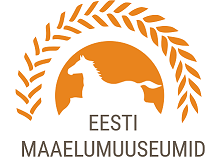In March 2025, the Estonian Intangible Cultural Heritage Council officially added the entry “Breeding of Tori cultural horses” to Estonia’s national list of intangible cultural heritage. This is a significant recognition for Tori Horse Breeding Farm, the entire community of breeders, and Estonian horse culture as a whole.
The Tori horse is Estonia’s only national horse breed. Its breeding began in 1856 with the founding of the Tori Horse Breeding Farm. Today, the breed is listed as endangered, with fewer than 1100 horses remaining and a steadily declining number of breeders.
“Being added to the list of intangible cultural heritage strengthens awareness of the Tori horse's value and the knowledge and skills related to its breeding, which have been passed down through generations. It supports the community that works daily to preserve this national treasure,” said Agris Juhkov, equine director at Tori Horse Breeding Farm and one of the authors of the application.
Throughout history, the Tori horse has adapted to changing needs – used for work, riding, and sport. It is a versatile, healthy, calm, and cooperative breed, making it unique even on the global stage. The breed has been officially registered in a studbook since 1922, with state recognition following in 1925.
The Intangible Cultural Heritage Council evaluated the application as well-structured, comprehensive, and goal-oriented. The entry emphasized that Tori horse breeding is not just a practical activity but a living tradition, enriched with cultural knowledge, values, and skills that deserve continued support and transmission.
As stated in the application: “The Tori breed is well developed – but without strong collective action and a supportive environment, it may face serious threats within the next ten years.” Inclusion in the UNESCO national list is therefore not only a recognition, but a call to action – for breeders, decision-makers, and the public.
To maintain and promote the breed, regular performance tests, exhibitions, and public events are held. The next major opportunity to see Tori horses and meet their breeders will be on May 1st at the traditional Stallion Day in Tori, which gathers enthusiasts from across the country.
The application to the intangible cultural heritage list was compiled by Merike Lang, Agris Juhkov, Mari-Liis Tammiste, Anu Reigo, and Kadri Valner.

